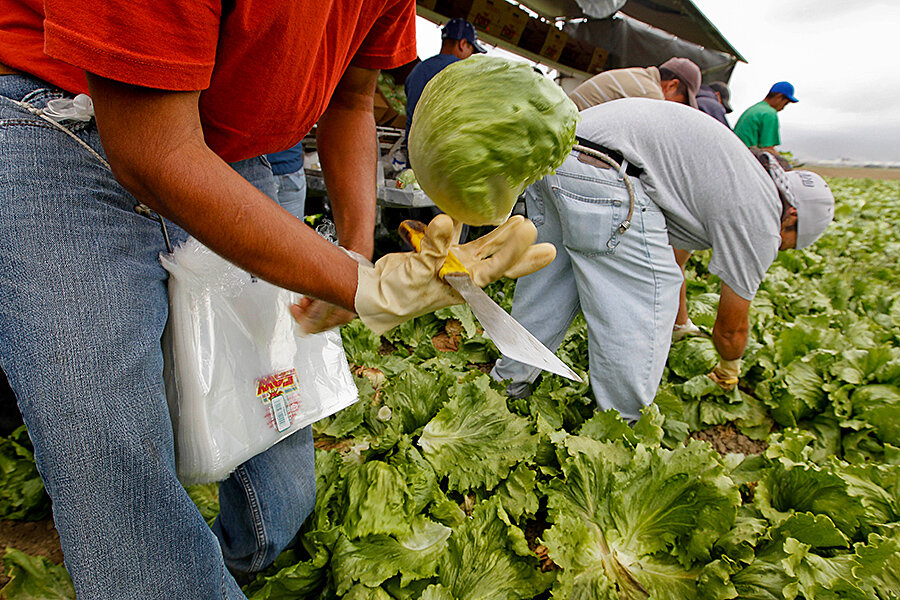From Silicon Valley to the Central Valley, California industries rely on about 130,000 foreign guest workers to do everything from tech jobs to picking grapes, peaches, and almonds. Three out of four of them are hired through labor contractors, according to rough estimates. A new law has the potential to transform the way those contractors do business – and protect vulnerable workers.
The California Foreign Labor Recruitment Law, the first of its kind in the nation, requires recruiters to meet certain conditions and register with the state. Taking effect in July, it forces businesses that want to use foreign-labor contractors to work with only those that are registered, and to tell the state which contractors they are using. It provides a host of protections for workers, including a rule against charging them any fees.
“People should be able to look up in a registry who is legitimate and who isn’t,” says Kay Buck, executive director of the Coalition to Abolish Slavery & Trafficking in Los Angeles. “With transparency, the prevalence of modern slavery decreases.”
Read the series: Human trafficking: California keeps a closer eye on recruiters







